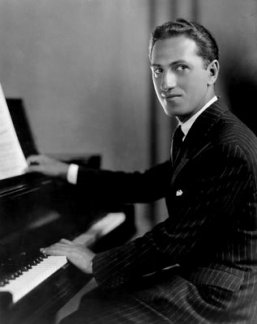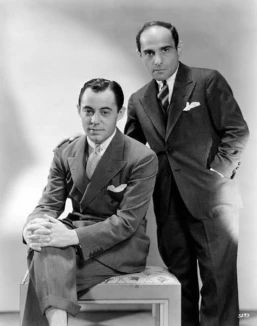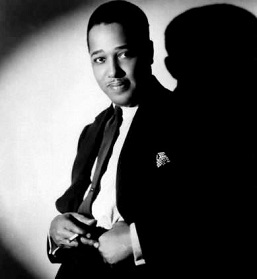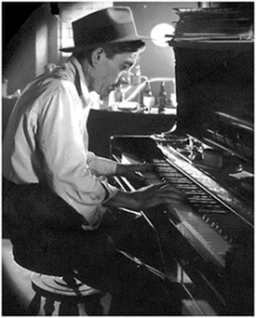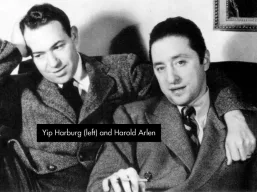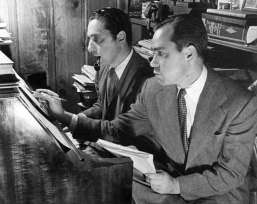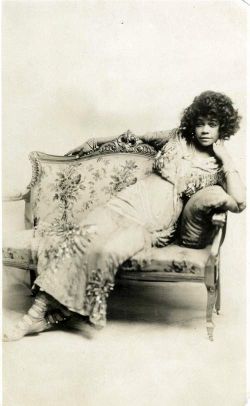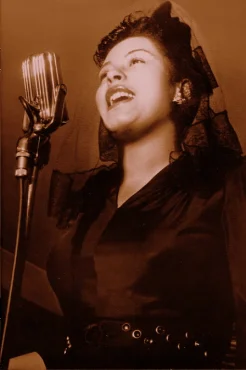Caravan
_________________________
Caravan (m. Juan Tizol, Duke Ellington, w. Irving Mills)
 The composition was first recorded as an instrumental in 1936 by Barney Bigard & His Jazzopaters. Two takes were recorded at a 19 December session, of which the first was published. Performers on that initial recording were Cootie Williams (trumpet), Juan Tizol (trombone), Barney Bigard (clarinet), Harry Carney (baritone sax), Duke Ellington (piano), Billy Taylor (bass) and Sonny Greer (drums).
The composition was first recorded as an instrumental in 1936 by Barney Bigard & His Jazzopaters. Two takes were recorded at a 19 December session, of which the first was published. Performers on that initial recording were Cootie Williams (trumpet), Juan Tizol (trombone), Barney Bigard (clarinet), Harry Carney (baritone sax), Duke Ellington (piano), Billy Taylor (bass) and Sonny Greer (drums).
Excerpt from WICN’s (defunct) Song of the Week feature:
“Caravan” has been recorded so many times that a radio station could play a different version of the song for 24 hours straight without a repetition. It has been called the first Latin jazz song, but it owes much to Middle Eastern influences as well. It seems that everyone has covered the song, beginning with Barney Bigard and his Jazzopaters in December of 1936. A month later in 1937 Duke Ellington recorded it with his orchestra. Bigard’s recording peaked at fourth place on the pop charts and Ellington’s at #20. In 1949 Billy Eckstine’s million-selling recording peaked at #27 and Ralph Marterie had a million-seller peaking at #6 in 1952.
As was true for many of Ellington’s compositions, the idea for “Caravan” originated with a musician in his band, trombonist Juan Tizol. He joined Ellington’s orchestra in 1929 and remained with him for the next 15 years. Ellington frequently wrote arrangements that took advantage of Tizol’s mastery of the valve trombone, pairing him with saxophones and trumpets. In 1944 Tizol left the Ellington band and moved to the Harry James orchestra. In 1951, Ellington persuaded Tizol, along with the drummer Louis Bellson and alto saxophonist Willie Smith, to rejoin his band in what became known as “The Great James Raid”. Tizol left the Ellington band two years later and retired from regular touring. He wrote several songs, most of them during his time with Ellington and for which Ellington usually did the arrangements; “Caravan” and another jazz standard “Perdito” were the only ones that were commercially successful. Tizol sold the “Caravan” song rights to Irving Mills, Ellington’s publisher and manager, for $25. At that time it was customary to pay royalties as a flat settlement fee, but when the song became a hit, Tizol requested a share of the royalties and Mills agreed.
____________________
Barney Bigard & his Jazzopaters — recorded 19 December 1936
- Cootie Williams: trumpet)
- Juan Tizol: trombone
- Barney Bigard: clarinet
- Harry Carney: baritone sax
- Duke Ellington: piano
- Billy Taylor: bass
- Sonny Greer: drums
Note that Juan Tizol alone is credited as composer on the label.
.
Duke Ellington and his Orchestra – 1937
video to be replaced
_____________________
The Mills Brothers – 1937
.
Valaida Snow – 1939
.
Dizzy Gillespie – from the A Portrait of Duke Ellington – 1960
.
Art Blakey and his Jazz Messengers, released on the album Caravan, by Riverside Records – 1962 — Art Blakey, drums; Wayne Shorter, tenor saxophone; Freddie Hubbard, trumpet’ Curtis Fuller, trombone; Cedar Walton, piano; Reggie Workman, bass
.
Thelonius Monk — Berliner Jazztage, Berlin/Germany, 7 November 1969
.
Chet Atkins and Les Paul –from the album Chester and Lester- 1976
.
Lawrence Brown – undated
.
Oscar Peterson Trio – 1986
.
Guitarist Michael Johnson & Violinist/Fiddler Kyle Dillingham – undated
.
Jeanne Lee and Mal Waldron – from the 1994 LP After Hours
.
















